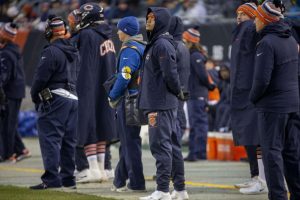
Working Strategies: Top 10 interview mistakes to avoid – Part 1
Amy Lindgren
Do you dread making mistakes in interviews? That’s probably good, since over-confidence can be problematic. Finding the right level of nervousness might depend on avoiding the mistakes you can anticipate. These 20 don’t represent a comprehensive list, but they’re a good start.
Mistake 1: Doing any of the things you’ve seen on sit-coms. Just to get these out of the way — Don’t slurp your coffee, don’t call interviewers by the wrong name, don’t push past someone in the elevator only to discover that’s the interviewer, don’t wear anything prone to “wardrobe mishaps”… you get the idea. These are the low-hanging fruit of interview mistakes, so they should be easy to avoid.
Now read on for the subtler boo-boos, which you might not even know you’re committing.
Mistake 2: Not asking for details when scheduling the interview. While the basics will be covered in the invitation, there are other details to consider. For example, learning the meeting length lets you estimate the number of questions (expect five or six per half-hour). Likewise, knowing who will attend can help you anticipate the questions themselves.
To get these details, just ask the person making the arrangements. If that works, try for more: Will the process include multiple interviews? How many candidates are scheduled? By being polite and gracious, you may learn a lot.
Mistake 3: Scheduling too tightly. With many interviews being conducted online, it’s tempting to squeeze the meeting into an already tight day. That’s a bad idea, but it’s even worse if you do that with an in-person session. Consider that a one-hour interview could easily double if you meet with another work group or take a tour. You’d have to decline these opportunities if you’d overbooked yourself.
Mistake 4: Not researching the organization and competitors. The more you know, the better your answers. For example, if you were asked about the possibility of starting a certain program, knowing the programs this group or their competitors had already started would strengthen your answer.
Mistake 5: Not preparing a strategy. Candidates often head into interviews with a wait-and-see attitude. (As in, “I’ll wait and see what questions they ask.”) That’s a tactic, not a strategy. To ensure interviewers learn what they should from you, plan to include two or three key messages and examples of previous successes. Taking care to identify your best skills for this job will improve your performance exponentially.
Mistake 6: Going empty-handed to in-person interviews. At a minimum bring note paper, a pen, and résumés, tucked neatly into a professional portfolio or briefcase. For extra credit, include leave-behinds, such as letters of recommendation or work samples.
Mistake 7: Seeming disorganized. For in-person meetings, disorganization looks like this: Carrying too much, shuffling papers, reaching into your bag repeatedly for various things, or looking rumpled like a television detective. For telemeetings, disorganization looks like not having your camera well-aligned, not knowing the mic is off, using bad lighting, having kids or pets in the background, or looking down while you shuffle papers.
The solution here is to trim away as many “extras” as you can. That means leaving your coat in the car for in-person meetings and carrying one simple case that you pull things out of immediately after sitting at the interview table. For telemeetings it means practicing in advance and choosing a closed-door space without distractions.
Mistake 8: Not greeting everyone. Giving a warm, professional handshake has traditionally indicated confidence and reliability. You’ll need to judge whether physical contact is appropriate, but everyone should be greeted in some way. In telemeetings, one option is to make a short statement, such as: “I’m so glad to talk with you as a group today, and I’m looking forward to individual conversations as well. You have an exciting team at ABC Company.”
Mistake 9: Not managing your cell phone. If there’s a reason for staying reachable, tell interviewers at the beginning. Otherwise, whether the meeting is in-person or remote, your phone should be out of sight, ringer off, to ensure you don’t check it out of habit.
Mistake 10: Not listening to the question before answering. Nerves can lead to fast replies, but it’s essential to truly hear the question before responding. Otherwise, you risk providing a partial answer or the wrong information altogether. In the same light, asking for clarification is better than blundering forward if you’re not sure you understood the question.
Okay, we’ve hit the first 10 – come back next week for the second half of our Top 20 interview mistakes to avoid.
Related Articles
Working Strategies: Getting organized for the new year
Working Strategies: Weighing the daunting back-to-school decision
Working Strategies: Overcoming the fear of salary negotiation
Working Strategies: 75 Resolutions for the New Year
Working Strategies: Books to get you thinking about work and fun
Amy Lindgren owns a career consulting firm in St. Paul. She can be reached at alindgren@prototypecareerservice.com.

